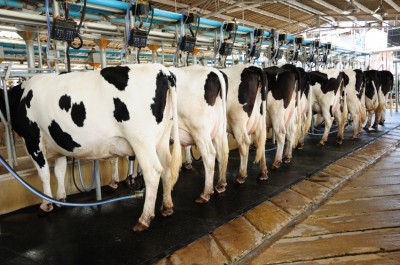US appeals court upholds FDA action on judicious use of antibiotics

Yesterday saw the Second Circuit Court of Appeals overturn two district court rulings from 2012 in a case initially filed in 2011 by the Natural Resources Defense Council (NRDC) and other advocacy groups, which directed the Food and Drug Administration (FDA) to stop the routine use of certain antibiotics in healthy animals unless drug makers proved the safety of such use.
The US agency supports a voluntary approach to limiting the indiscriminate use of antibiotics in feed.
In December, it began implementing a plan to phase out the use of medically important antimicrobials in livestock by 2017, whereby then, it says, antibiotics will only be given to farm animals for therapeutic treatment, and, at the direction of a veterinarian.
Last month, the FDA said all 26 drug manufacturers were fully engaging with this strategy.
FDA not “arbitrary or capricious"
In yesterday’s 2 to 1 majority ruling, the judge, Gerard Lynch, disagreed with the earlier district court decrees, saying the FDA was not “arbitrary or capricious” in denying the petitions from the NRDC and others, or in encouraging the "judicious" use of antibiotics in feed, as opposed to withdrawing approval for their use through a "protracted administrative process and likely litigation."
He said while the FDA regards “the indiscriminate and extensive use of such drugs in animal feed as threatening, it does not necessarily believe that the administration of antibiotics to animals in their feed is inherently dangerous to human health.”
Judge Robert Katzmann, in a dissenting opinion, said the appeal court’s decision allows the FDA to openly declare that a particular animal drug is unsafe, but then refuse to withdraw approval of that drug.
Council could appeal ruling
The NRDC, the Union of Concerned Scientists and the Centre for Science in the Public Interest have been calling on federal regulators to take a more hard line approach to limit the use of antibiotics in animal feed, saying the FDA guidelines are ineffectual as they allow livestock producers to continue to use antibiotics on healthy animals to prevent disease.
When asked if the NRDC was going to appeal yesterday’s judgment, the Council's health attorney, Mae Wu, told feednavigator.com: “Everything is on the table. We are considering all legal options."
The Animal Health Institute (AHI) told us it welcomed the court’s ruling saying the “legal challenges and citizen’s petitions that are set aside by this decision have diverted agency resources from focusing on moving ahead with implementing the judicious use policy.
We believe this decision will clear the way and allow FDA to focus on working with stakeholders to successfully implement this policy in a timely manner."
The FDA said it is currently reviewing Thursday’s ruling but is “pleased with the outcome.”
Concern over global antimicrobial resistance
Meanwhile, a recent report from the World Health Organization (WHO) indicates increasing global antimicrobial resistance (AMR).
And the review notes “microorganisms resistant to antimicrobials that emerge in animals may spread to human populations.”
The WHO report highlighted a growing concern about transmission to human populations of methicillin-resistant staphylococcus aureus (MRSA) related to high-density swine production.
The organization said there is a lack of harmonized global standards for integrated surveillance of AMR in the food chain, and on the monitoring of the usage of antimicrobial drugs, which hampers both analysis and sharing of data.
“There are gaps in understanding AMR transmission potential and mechanisms (by bacteria and resistance genes) through the food chain to humans and its impact on human populations,” found the review.









